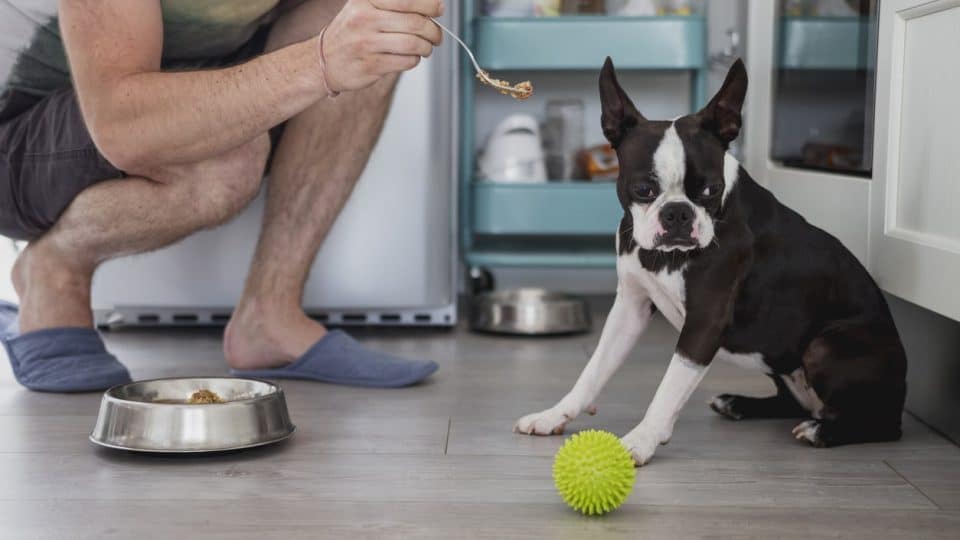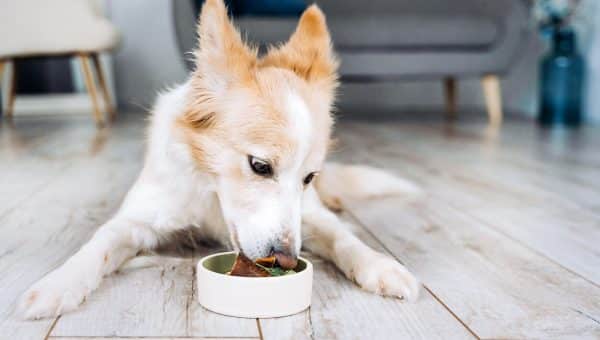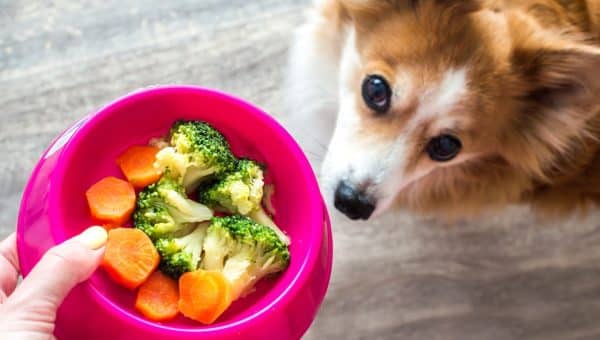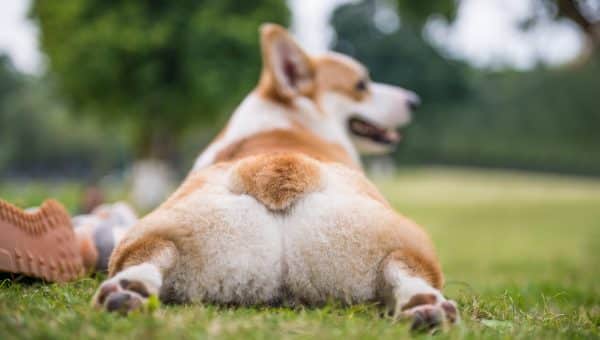- Not a substitute for professional veterinary help.
It’s natural to worry when your dog leaves their food untouched. If your dog has suddenly stopped eating, this could be due to many reasons—from stress to an undiagnosed health condition. Lack of appetite for anything over 24 hours should be investigated by your veterinarian, but whether or not you get an emergency appointment depends on a few other factors.
If your dog is still drinking water and seems to be their usual self, they probably don’t need an immediate appointment. But if they’ve suddenly stopped eating when they’re usually a voracious eater, seek advice sooner rather than later.
“When it comes to eating habits, no two dogs are the same—in the same way that we humans are different,” said Carolyn Menteith, a behaviorist at tails.com. Knowing what is normal behavior for your dog will help when speaking to your veterinarian to diagnose the specific cause. We discuss possible causes below and recommendations for increasing your dog’s appetite.
Reasons Dogs Refuse to Eat
It can be very worrying when your dog stops eating, but if your dog is still drinking water, their lack of appetite is often down to one of the following reasons:
It’s in their genes to be picky
Just like us, dogs have food preferences. Some breeds have an enthusiastic relationship with food, but others are more picky. “Labradors are notorious for their love of food, have a strong food drive, and are often motivated by treats and rewards during training sessions,” said Dr. Bethany Hsia, veterinarian and co-founder of CodaPet.
Other breeds, including Yorkshire Terriers and Chihuahuas, can be picky eaters. Dr. Hsia says their small size and delicate digestive systems may contribute to a decreased appetite or food aversions.
They dislike their food
Some doogs can get bored of eating the same food all the time. You might be tempted to add table scraps to their regular meals, but that’s not always a good idea.
“You don’t want to give table scraps randomly mixed in with their normal kibble, says Russell Hartstein, a certified dog behaviorist and trainer in Los Angeles and founder of Fun Paw Care. He recommends this type of food be reserved for training sessions and used as a high-value reward in a distracting environment.
They don’t like their bowl, or location of the bowl
Make sure you have the right food bowl for your dog and place it in an appropriate location. “Location matters, especially with multi-pet households,” Hartstein explains.
Mentieth adds that feeding your dog on a slippery floor can put a strain on their joints, making meals uncomfortable. Switching to feeding on a carpet or rug may help.
She also mentioned checking your dog’s collar. “Having a metal dog tag that clanks against a metal or ceramic bowl can put a dog off their meal.”
They have anxiety
“Anxiety, fear, stress, and arousal will all trump a dog’s desire to eat and override their appetite,” Hartstein explains. Assuming your dog’s food hasn’t changed, stress or anxiety is often one of the most common reasons a dog stops eating. Menteith says this anxiety can stem from the following.
- Separation issues
- Noise phobias
- Changes to the environment or living situation
- Travel and travel sickness
“When our dogs become anxious, it can have a long-lasting effect on their eating habits that can persist for some time after the immediate cause is removed,” Menteith adds.
They’re depressed
Grief can also impact a dog’s appetite. If a dog has lost a close family member, either human or canine, this can trigger behavioral changes, including a loss of appetite, not wanting to play, and lethargy.
They’re sick or in pain
If your dog isn’t eating, it’s vital to rule out any health conditions that could be causing pain or making them feel sick. These include:
- Dental issues
- Stomach pain
- Infections
- Joint pain
- Colds
- Side effects from medication
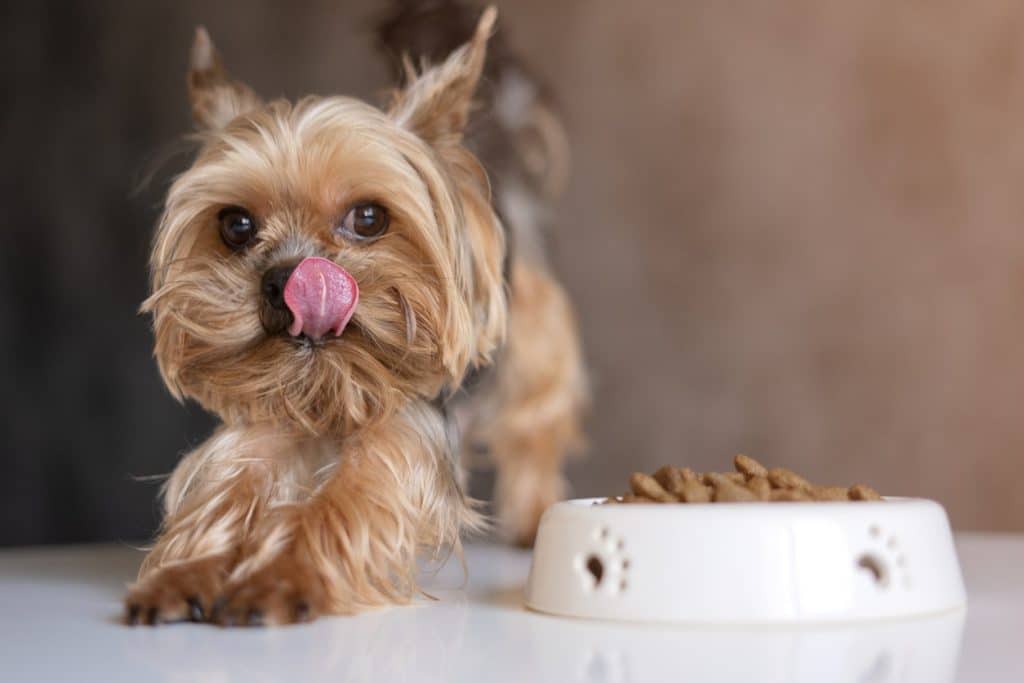
iStock/Valeriya21
What Should You Do If Your Dog Isn’t Eating or Drinking?
If your dog isn’t eating or drinking, they’re at risk of becoming dehydrated. Dehydration can also decrease your dog’s appetite, so it’s important to seek veterinary advice right away.
Dogs should drink around one ounce of water per pound of body weight each day. If your dog isn’t drinking that much—or not drinking at all—take them to the veterinarian.
While you’re waiting for an appointment, you can try offering your dog a few ice cubes or water with bone broth—both of which might tempt them to drink a little.
Getting Your Dog to Eat Again
If your dog isn’t eating, getting their appetite back depends on the cause. Dr. Cheri Honnas, a veterinary advisor to Bone Voyage Dog Rescue, recommends that pet parents battling these issues change up their feeding approach. Here’s what those changes might look like, broken down by cause.
How to get a picky dog to eat their food
“Something as simple as warming the food to intensify its aroma or introducing a new flavor can work wonders,” Dr. Honnas says.
Importantly, check that the quality of your dog’s food isn’t the reason they’re being picky. “Dog foods can be a problem when they are heavily processed, nutritionally deficient, or expired,” Dr. Hsia explains.
Always check that your dog food brand is approved by the Association of American Feed Control Officials (AAFCO), not expired, and provides a balanced and complete diet for your dog’s life stage.
How to settle an anxious or depressed dog so they eat
If anxiety, depression, or grief are the reason behind your dog’s lack of appetite, you might need to deal with the root cause before your dog’s appetite returns. Working with a qualified behaviorist is one of the best ways to uncover what’s behind your dog’s change in appetite and develop a tailored plan to help them.
If you’re leaving them alone for a long time, keep your routine as close to normal so your dog knows when it’s time to eat. Dr. Honnas also recommends seeing if keeping your dog company makes a difference: “Just as we enjoy shared meals with our family, some dogs find comfort and joy in eating when their favorite human is present.”
However, allowing your dog the time and space to eat in peace is crucial. If you have cats and dogs, Hartstein says to keep them separated to prevent anxiety around mealtimes.
How to treat a sick dog so they eat food
If an underlying health condition is the reason your dog isn’t eating, it’s vital to get this treated and under control. How your veterinarian approaches your dog’s pain or illness will vary depending on the condition. Treatment could involve medication, surgery, or a switch to prescription dog food.
Once your dog has started on a treatment plan, it’s important to monitor their progress. If you’re concerned their eating habits aren’t returning to normal, speak with your veterinarian as soon as possible.
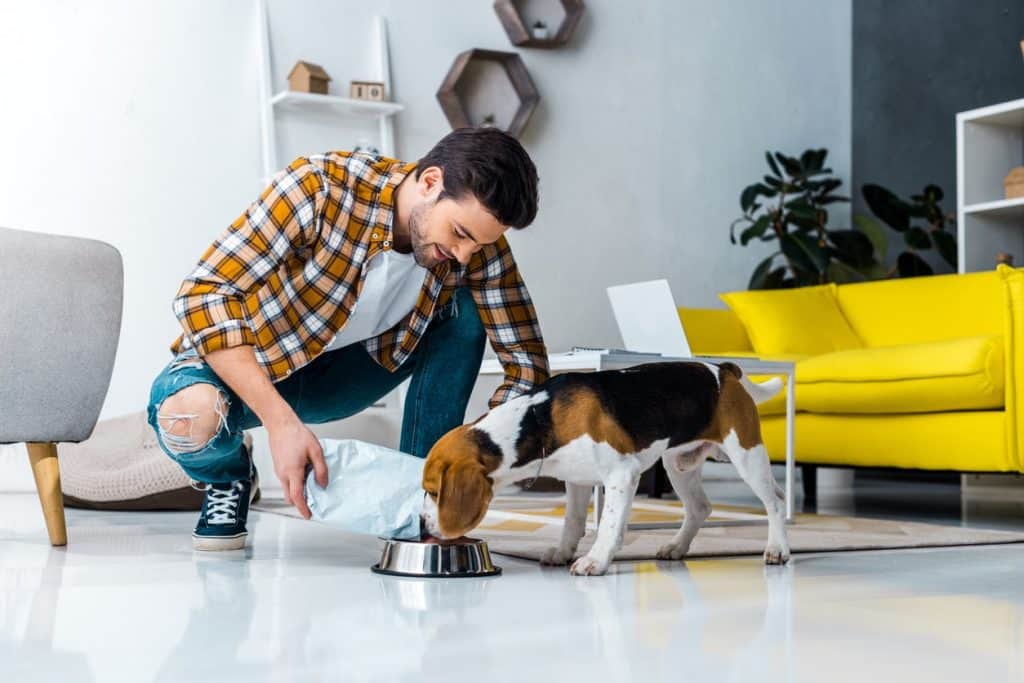
iStock/LightFieldStudios
When to See A Vet About a Dog Not Eating
Dr. Honnas emphasizes that enduring appetite loss, especially when accompanied by other disconcerting symptoms, warrants a visit to a veterinarian. What those symptoms might look like can vary from lethargy to not drinking, excessive panting, general weakness, or anything that means your dog isn’t their usual self.
You know your dog best, so if their lack of appetite is concerning you, it’s always best to seek veterinary support. “Their expertise can shed light on underlying concerns that might escape an untrained eye,” Dr. Honnas adds.
